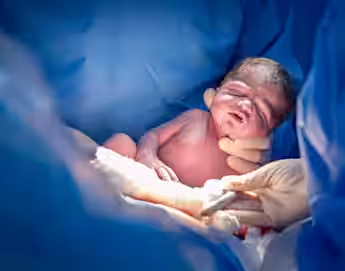Following a model pioneered by Guy's & St Thomas' NHS Foundation trust, the NHS is launching a network of 17 specialist centres to treat pregnant women considered high risk of dying in pregnancy or childbirth.
The centres will be staffed by specialist doctors, obstetricians, midwives and nurses under one roof in a direct response to promises to overhaul NHS maternity care, following recent maternity scandals at Nottingham University Hospitals and Shrewsbury and Telford trusts.
Currently, two-thirds of UK maternal deaths are a result of medical conditions that pre-date or develop during pregnancy, rather than direct complications of birth, including heart disease, epilepsy and stroke and also psychiatric illness and suicide.
Warning signs of these conditions are too often missed or wrongly attributed to pregnancy, rather than recognised and treated as existing medical conditions.
GPs and A&E staff will also be trained to identify red flag symptoms of illnesses in pregnant women and refer patients directly to the centres.
The inaugural centre at Guy's & St Thomas' is led by a team of women - Professor Catherine Nelson-Piercy, an obstetric physician, Sonji Clarke, a consultant obstetrician, and Sharon Elder, a midwife. The NHS will also train more consultants to ensure expert care is available to all women, following recommendation from Donna Ockenden, who led the inquiry into maternity failures at Shrewsbury and Telford.
Nelson-Piercy explained how diagnosis of pregnant women can by missed because if a pregnant woman goes to A&E with breathlessness, for example, she might be seen by a doctor who knows nothing about pregnancy. "Lots of pregnant women feel breathless and yet breathlessness is how heart failure presents."
Pre-existing medical problems are also significant in the variation in rates of mortality for black and Asian women. Black women are currently 3.7 times more likely to die than white women during pregnancy or immediately after giving birth.
Last year, the NHS committed an additional £127m for maternity services across England in its aim to halve maternity-related deaths, stillbirths, neonatal mortality and serious brain injury by 2025.
Read about our maternal injury and birth injury claims.
